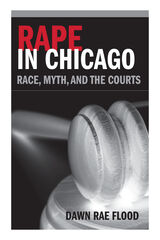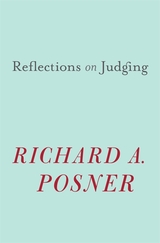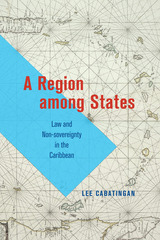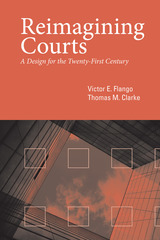5 start with R start with R


In Reflections on Judging, Richard Posner distills the experience of his thirty-one years as a judge of the United States Court of Appeals for the Seventh Circuit. Surveying how the judiciary has changed since his 1981 appointment, he engages the issues at stake today, suggesting how lawyers should argue cases and judges decide them, how trials can be improved, and, most urgently, how to cope with the dizzying pace of technological advance that makes litigation ever more challenging to judges and lawyers.
For Posner, legal formalism presents one of the main obstacles to tackling these problems. Formalist judges--most notably Justice Antonin Scalia--needlessly complicate the legal process by advocating "canons of constructions" (principles for interpreting statutes and the Constitution) that are confusing and self-contradictory. Posner calls instead for a renewed commitment to legal realism, whereby a good judge gathers facts, carefully considers context, and comes to a sensible conclusion that avoids inflicting collateral damage on other areas of the law. This, Posner believes, was the approach of the jurists he most admires and seeks to emulate: Oliver Wendell Holmes, Louis Brandeis, Benjamin Cardozo, Learned Hand, Robert Jackson, and Henry Friendly, and it is an approach that can best resolve our twenty-first-century legal disputes.

How is it that a great swath of the independent, English-speaking Caribbean continues to accept the judicial oversight of their former colonizer via the British institution of the Privy Council? And what possibilities might the Caribbean Court of Justice—a judicial institution responsive to the region, not to any single nation—offer for untangling sovereignty and regionhood, law and modernity, and postcolonial Caribbean identity?
Joining the Court as an intern, Lee Cabatingan studied its work up close: she attended each court hearing and numerous staff meetings, served on committees, assisted with the organization of conferences, and helped prepare speeches and presentations for the judges. She now offers insight into not only how the Court positions itself vis-à-vis the Caribbean region and the world but also whether the Court—and, perhaps, the region itself as an overarching construct—might ever achieve a real measure of popular success. In their quest for an accepting, eager constituency, the Court is undertaking a project of extrajudicial region building that borrows from the toolbox of the nation-state. In each chapter, Cabatingan takes us into an analytical dimension familiar from studies of nation and state building—myth, territory, people, language, and brand—to help us understand not only the Court and its ambitions but also the regionalist project, beset as it is with false starts and disappointments, as a potential alternative to the sovereign state.

Reimagining Courts recommends a triage process based upon case characteristics, litigant goals, and resolution processes. Courts must fundamentally reorganize their business processes around the concept of the litigant as a customer. Each adjudication process that the authors propose requires a different case management process and different amounts of judicial, staff, and facility resources.
Reimagining Courts should spark much-needed debate. This book will be of significant interest to lawyers, judges, and professionals in the court system as well as to scholars in public administration and political science.

Winner of the Julia Ward Howe Prize
“The gripping story of the most important environmental law case ever decided by the Supreme Court.”
—Scott Turow
“In the tradition of A Civil Action, this book makes a compelling story of the court fight that paved the way for regulating the emissions now overheating the planet. It offers a poignant reminder of how far we’ve come—and how far we still must go.”
—Bill McKibben, author of The End of Nature
On an unseasonably warm October morning, an idealistic young lawyer working on a shoestring budget for an environmental organization no one had heard of hand-delivered a petition to the Environmental Protection Agency, asking it to restrict greenhouse gas emissions from new cars. The Clean Air Act authorized the EPA to regulate “any air pollutant” thought to endanger public health. But could carbon dioxide really be considered a harmful pollutant? And even if the EPA had the authority to regulate emissions, could it be forced to do so?
The Rule of Five tells the dramatic story of how Joe Mendelson and the band of lawyers who joined him carried his case all the way to the Supreme Court. It reveals how accident, infighting, luck, superb lawyering, politics, and the arcane practices of the Supreme Court collided to produce a legal miracle. The final ruling in Massachusetts v. EPA, by a razor-thin 5–4 margin brilliantly crafted by Justice John Paul Stevens, paved the way to important environmental safeguards which the Trump administration fought hard to unravel and many now seek to expand.
“There’s no better book if you want to understand the past, present, and future of environmental litigation.”
—Elizabeth Kolbert, author of The Sixth Extinction
“A riveting story, beautifully told.”
—Foreign Affairs
“Wonderful…A master class in how the Supreme Court works and, more broadly, how major cases navigate through the legal system.”
—Science
READERS
Browse our collection.
PUBLISHERS
See BiblioVault's publisher services.
STUDENT SERVICES
Files for college accessibility offices.
UChicago Accessibility Resources
home | accessibility | search | about | contact us
BiblioVault ® 2001 - 2024
The University of Chicago Press









